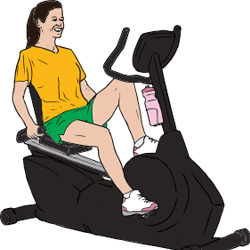Feeling Good is an Inside Job
So, you’re clean and sober and your body begins the process by detoxing. Our bodies are ultra-efficient machines when they are working at their optimum potential. However, when we’re getting high and drinking, our bodies have been working overtime to filter out all the chemicals we’ve been abusing. Our liver is tired! Our lungs, exhausted! And our brains… worn out. Our bodies have been overworked and it, too, needs to recover.
 Nutrition
Nutrition
You finally have your appetite back. This is a miracle in of itself! Our bodies are ready to heal, too. Over the years of our addiction, our bodies have been unable to correctly absorb the required amount of vitamins and nutrients. We have compromised our immune system. Proper nutrition is essential part healing of our bodies, mind and spirit for continued recovery.
It is important to consider nutrition in treating the over-all health of the recovering addict. This will help with continued sobriety once the body’s natural functions are fully restored. In the beginning, sugar may be necessary to help with cravings. However, for long-term recovery, a diet of reduced sugar, limited caffeine along with an increase in essentials vitamins and amino acids can help improve mood and appearance. Whole grains assist in restoring a balanced diet along with fresh fruits and vegetables. A healthier diet also helps get a recovering addict back into a routine, with regularly planned meals and snacks.
Exercise
The only exercise we got in active addiction was jumping to conclusions, flying off the handle, running down the dope dealer, knifing friends in the back, dodging responsibility, and pushing our luck. Since grade school, we’ve been taught the importance of exercise beginning with the Presidential Fitness Test, running laps in school, doing somersaults in gym class, etc. As a recovering addict, the importance of exercise is paramount.
Once we’ve begun our recovery, nutrition and exercise can work together to help release endorphins, which is like a natural high. We can begin to repair the harm caused by all the chemicals that forced our brains to release endorphins. Endorphins are your brain’s feel-good neurotransmitters. We start the healing with mild exercises that helps to release natural endorphins. We can start by just walking, 10-minutes a day, a couple times of week. We can take aerobic or yoga classes at our local community center. The bottom line, we just need to start moving and creating healthy neurotransmitter functioning, rather than the chemically-induced kind. Exercise also helps our bodies in the detox process, with just the simple exchange of filling up our lungs with fresh air.
Another benefit of exercise is that it improves mood. Exercise can help increase self-esteem and self-confidence and helps to lower symptoms related to depression and anxiety. Exercise is also beneficial to healthy sex life and sleep. Our bodies heal while we sleep. During active addiction, it was rare to get a good night’s sleep. We were either passing out or coming to in the morning. Virtually any form of exercise is conducive to a recovering addict’s over-all wellness. Find an exercise you like, and you’re more likely to stick with it. The most important thing to do is just start.Feeling good is an inside job.


